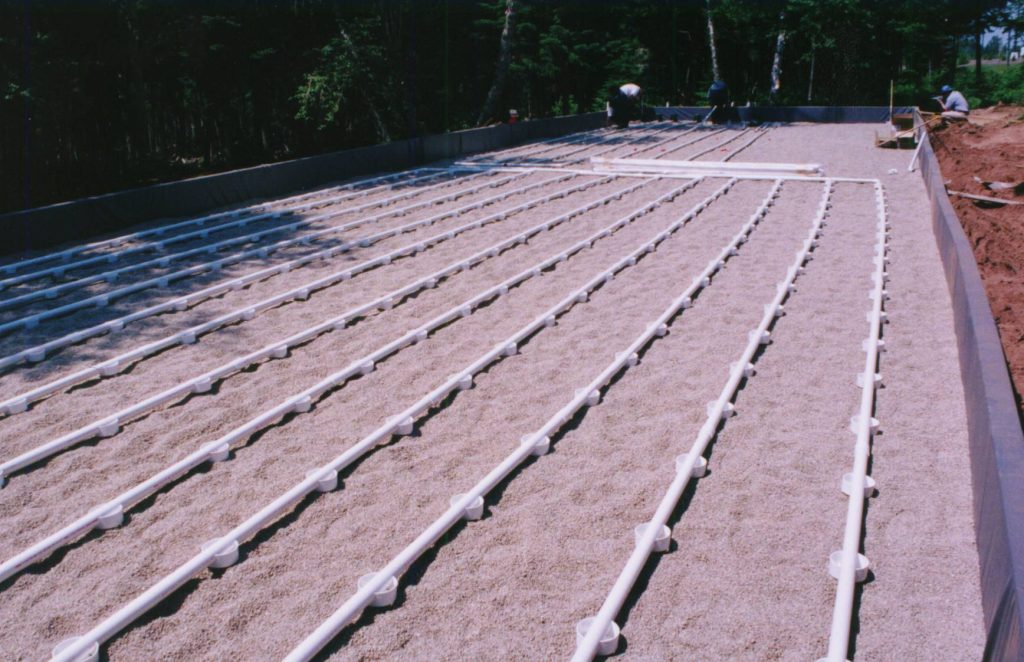
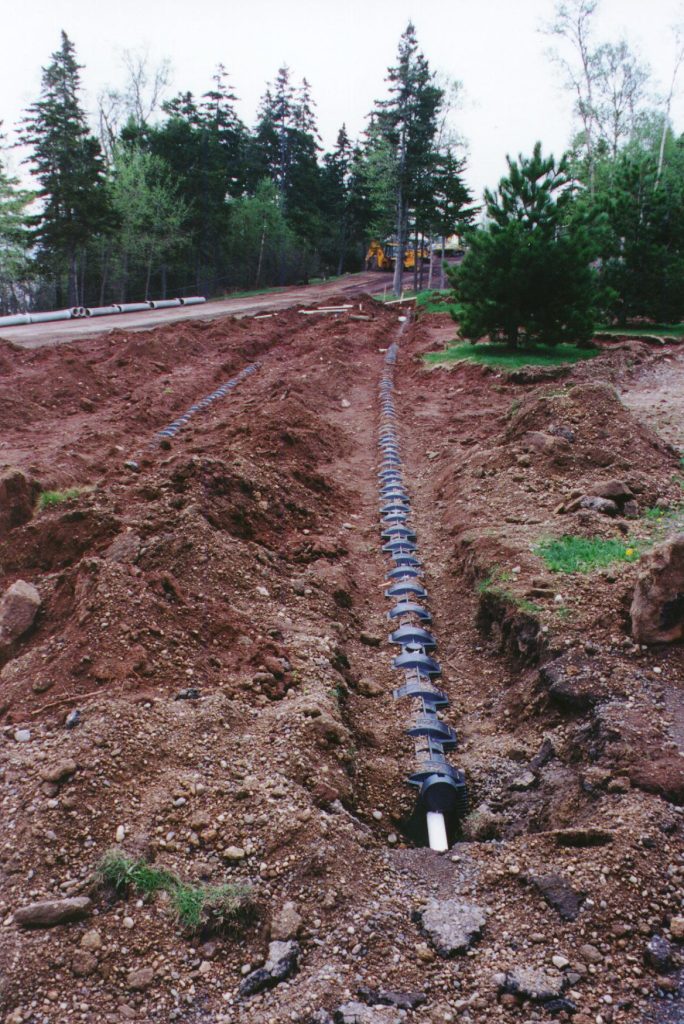
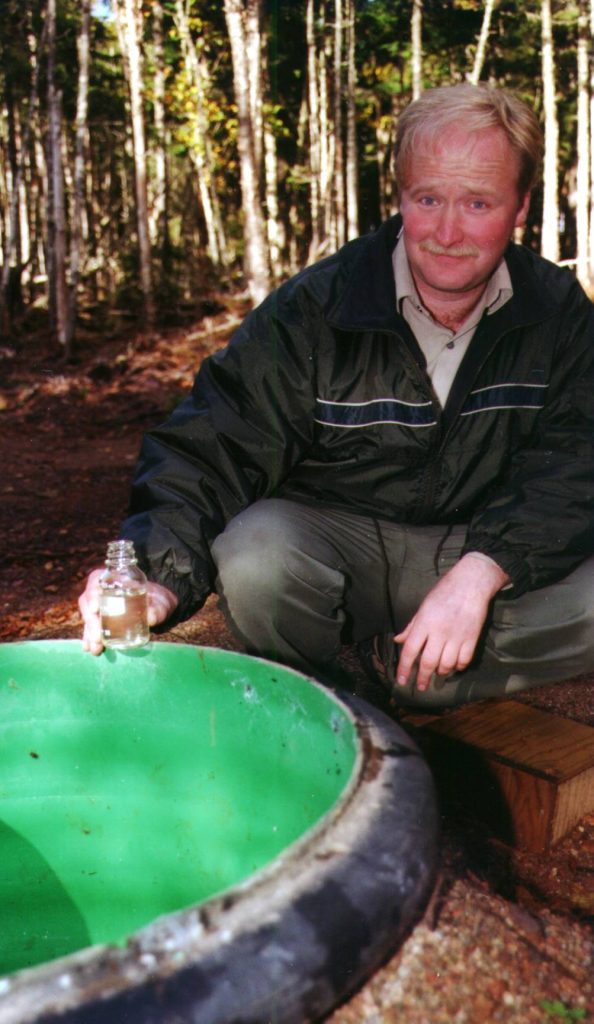
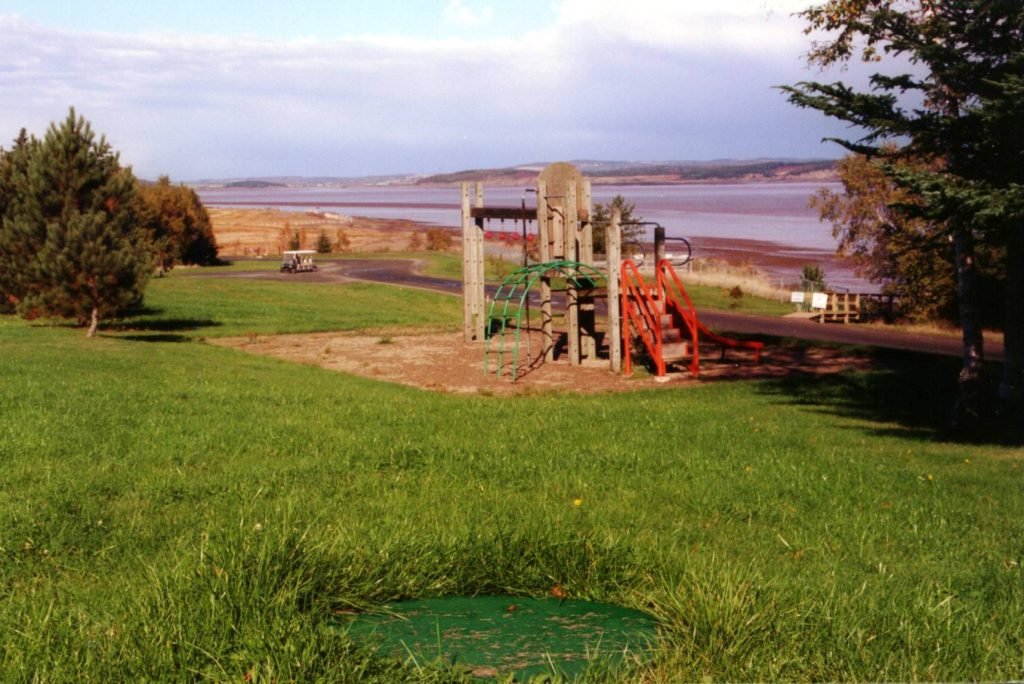
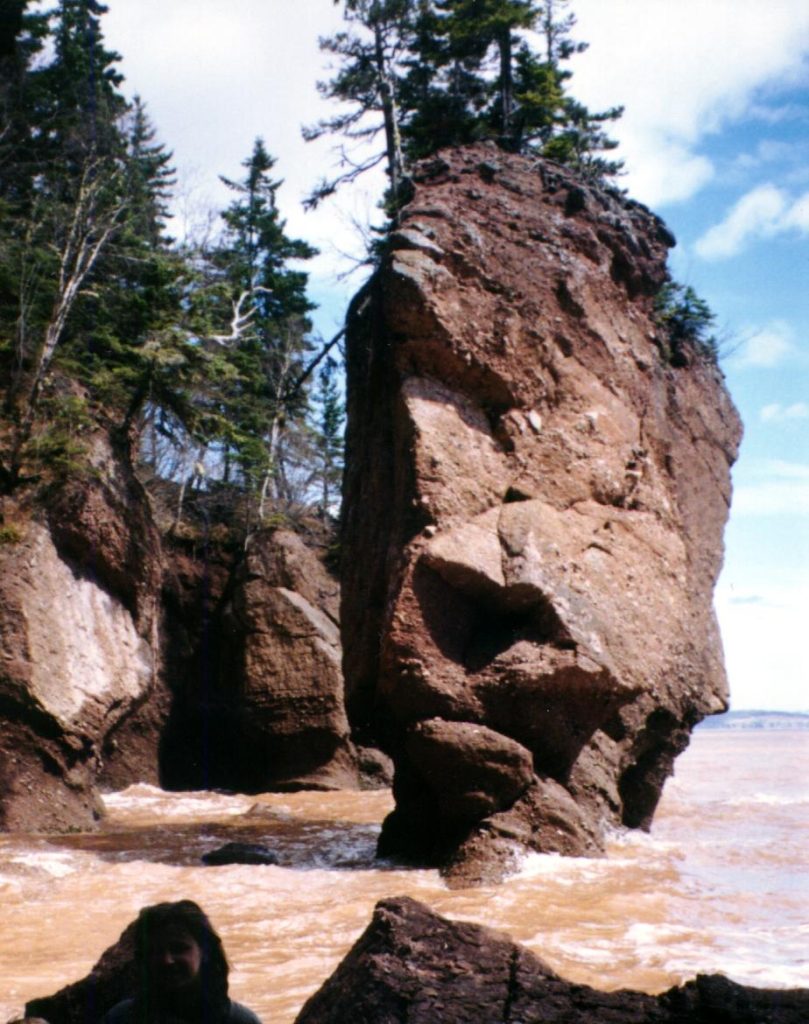
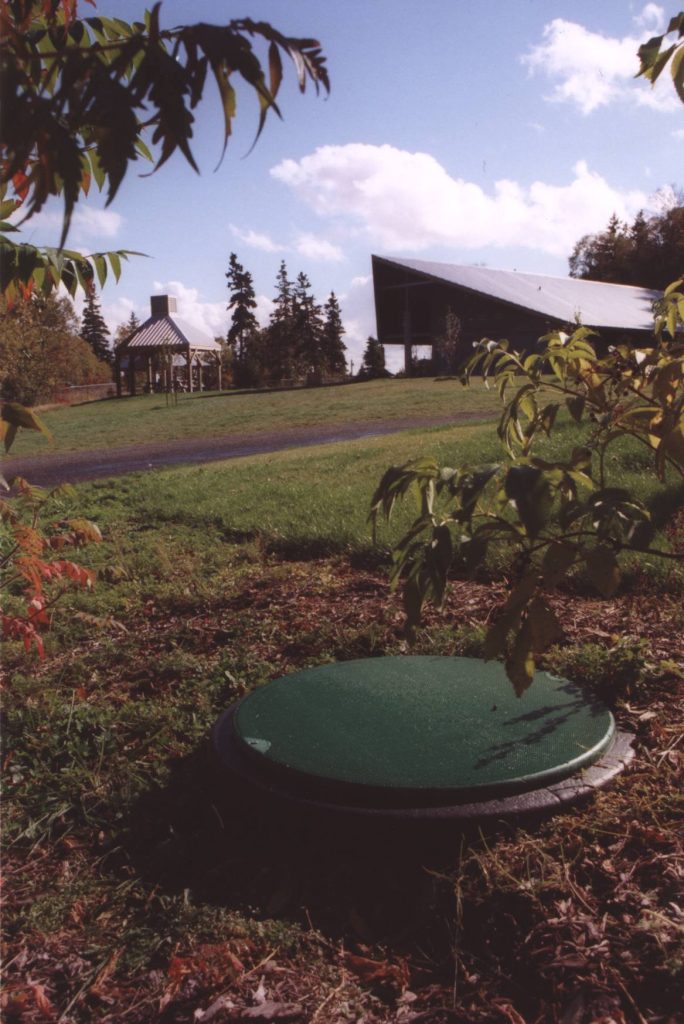
On the rugged coast of Southern New Brunswick overlooking the Bay of Fundy, the majestic Hopewell Rocks attract more than 200,000 visitors annually. They come to stand in awe of the towering rock formations created by the natural forces of erosion and the highest tides in the world. A new Tidal Exploration Centre had been built with an Interpretive Centre, a 120 seat full service restaurant and public washroom facilities for the over 4000 people per day who visit the site. However, when the new Centre opened in the Summer of 1998, an acceptable means of managing wastewater had still not been found and Park operators had to truck thousands of gallons of sewage off the site every day.
Engineering Technologies Canada Ltd. (ETC) was retained to find an appropriate and affordable wastewater management solution that would be acceptable to Provincial regulators. Criteria for the on-site sewage system were as follows:
Zero discharge of effluent to the Bay of Fundy;
● Minimize impact on the site, no additional tree clearing;
● Should not require highly skilled operators;
● Modular, easy to expand
ETC recommended and designed a Recirculating Sand Filter (RSF) to treat the wastewater to advanced secondary levels. Fractional horsepower effluent pumps micro-dose an open filter bed constructed of coarse sand. The treatment process is extremely low rate and very stable. When properly operated and maintained,
the sand should never need to be replaced. The proven RSF system was the first of its kind in New Brunswick.
Achieving a zero discharge system for the treated effluent would also prove to be a challenge as the site was overlain with less than 1 metre of glacial till soil on top of massive, conglomerate bedrock. A Subsurface Drip Irrigation(SDI) system was designed to maximize the ability of the site to absorb the crystal clear effluent from the RSF. The specialized drip tubing was buried 150 mm below the ground surface which avoided problems caused by hazardous aerosol sprays. Effluent is applied in small regular doses, 24 hours per day, which optimizes its uptake by the mature trees, vegetation and biologically active rootmat layer.
The SDI effluent dispersal system was the first such system in Canada. The Park’s regular maintenance staff operate and maintain both the RSF and SDI systems without the need for additional highly skilled operators. SERCO was the recipient of several national and international awards for environmental achievement. They credit these awards in part to their environmentally friendly, sewage treatment and effluent dispersal systems.
